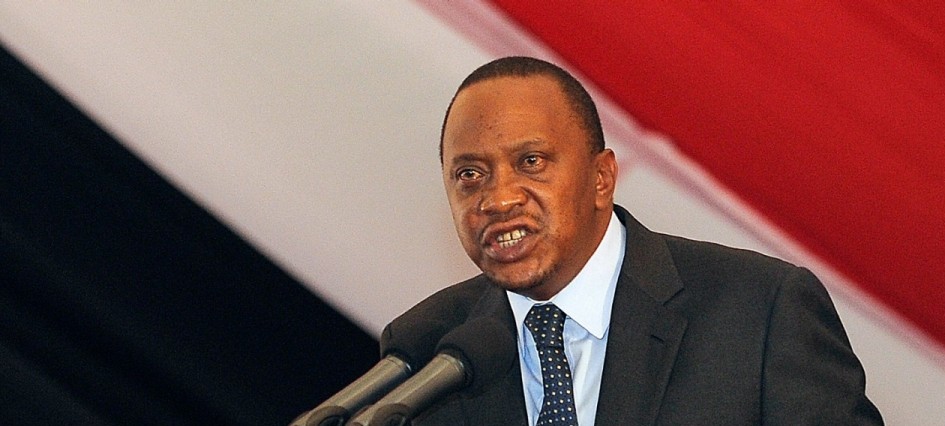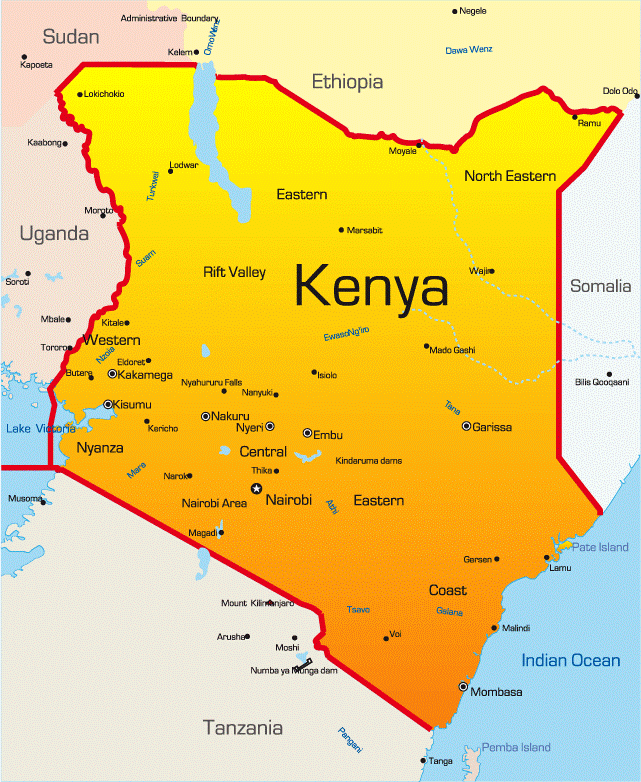Kenya’s President Kenyatta
November 21, 2017 | Expert Insights

Kenya’s Supreme Court has upheld the victory of President Uhuru Kenyatta in last month’s re-run of presidential elections.
The results of the elections that had been held in August had been declared “null and void” by the courts earlier this year.
Background
Kenya is a country in East Africa bordering the Indian Ocean in south east. Its neighbors are Ethiopia, Somalia, South Sudan, Tanzania, and Uganda. Scientists have been able to find evidence of mankind’s earliest ancestors in the region.
The country has often been marred by violence. The Islamist militant Al-Shabab movement, has launched a number of attacked in Kenya. The militant group is particular active in Somalia but carried out the 2013 Westgate shopping mall in Nairobi and the 2015 attack on Garissa University College. Home to 48 million people, the region also grapples with challenges like high unemployment, crime and poverty. It also suffers from frequent droughts that puts the lives of millions of people at risk.
In addition to these issues, the country has often seen large outbursts of violence during the election period. There general elections that were held in Kenya in 1992 were the first multi-party elections since the nation got its independence. The results were marred by allegations of ballot-box stuffing, and targeted ethnic violence in the Rift Valley Province.
In fact, it was the general elections that took place in 2007 that resulted in the year-long emergency. International observers have stated that this was a political, economic, and humanitarian crisis. It happened after former President Mwai Kibaki was declared the winner of the Presidential elections. The vote had taken place on December 2th, 2007. The announcement was met with violence. The crisis only ended after Kibaki and Odinga signed a power-sharing agreement called the National Accord and Reconciliation Act 2008.
The current President of Kenya is Uhuru Kenyatta. The general elections in Kenya had been held on August 8th, 2017 and Kenyatta was once again declared the winner. The August election also attracted violence. Human rights groups have said that at least 24 people were killed as a result. Kenyatta was declared the winner, but the opposition said that the elections were rigged by the government. However, in September 2017, the Supreme Court of Kenya declared the results of the elections “null and void.” It is likely that this is the first time in Africa where the court has ruled in favor of the opposition regarding election fraud.

Analysis
The re-run of Kenyan elections took place on October 26th, 2017. Odinga withdrew because he said that the elections won’t be fair this time around as well. Kenyatta won the second poll with 98% of the vote on a turnout of only 39%. Many observers are increasingly concerned by rhetoric highlighting ethnic faultlines in Kenya, a regional economic hub and key western ally.
Now, Kenya’s supreme court has upheld the victory of President Uhuru Kenyatta in last month’s controversial re-run of presidential elections. "All six judges sitting on this case said that the petitions filed to the court to cancel the results of the rerun of the presidential election had no merit," Al Jazeera's Fahmida Miller, reporting from the capital Nairobi, said.
Odinga responded to the latest development by releasing a statement noting, “This ruling didn’t come as a surprise. It was a decision taken under duress. We do not condemn the court, we sympathize with it.”
Kenyatta called the case against the rerun of the presidential election a waste of time. Odinga has vowed to embark on a political campaign in Kenya to "restore democracy in the country", and called for a "resistance movement" to protest against the results.
Assessment
Our assessment is that the September ruling by the supreme court could embolden other judiciaries in Africa. This month, Liberia’s supreme court halted a presidential run-off until the election board investigates claims of fraud in the first round of voting. This could also shape the way elections will be conducted in Kenya in the coming years. For now, Kenyatta is expected to be sworn in once again on November 28th, 2017.








Comments